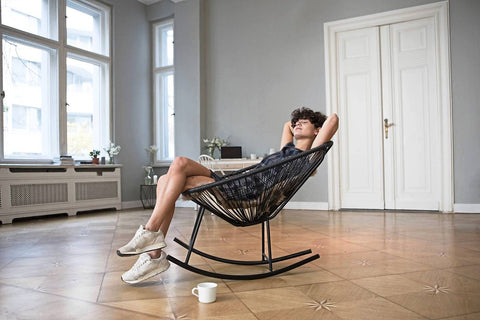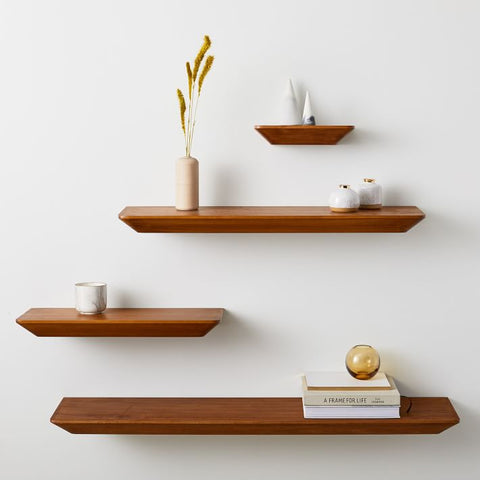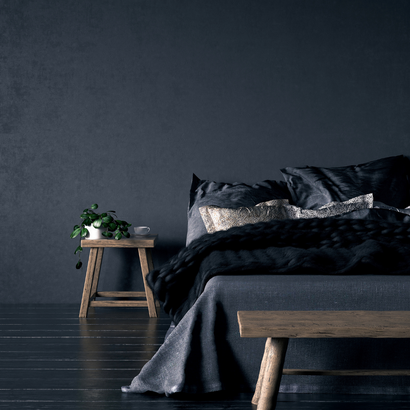Your Cart is Empty
We may experience shipping delays due to freezing temperatures. Our offices will be closed from 12/22-1/3. We will ship all orders before 12/22 and resume on 1/3. Happy Holidays!
We may experience shipping delays due to freezing temperatures. Our offices will be closed from 12/22-1/3. We will ship all orders before 12/22 and resume on 1/3. Happy Holidays!
The Clean Slate of Modern Minimalism
Last year, we wrote a blog on the rise of Maximalism, a design style where more is more and bold patterns and saturated colors take center stage. As usual, the pendulum swings. As we look to 2021 and beyond, many are embracing a modern approach to Minimalism or “Human Minimalism,” where interior design is centered around the experience and sensory emotion generated by a space, with a keen eye toward nature, color, and light.

Believe it or not, Maximalism and Minimalism have a common thread: the curation of meaningful things -- from your favorite animal print to sourcing sustainable materials. They just show their love in different ways.
Because society and culture profoundly influence design, there seems to be a longing for simplicity -- a stripping down of over-manufactured and “throwaway” items -- and a more intense focus on quality materials, craftsmanship, and emotional connection.
Minimalism is proven to have a positive psychological impact on our brains. When esthetics are stripped down to the bare essentials, they each take on a well thought out purpose and place.
Minimalism is a philosophy that requires a dramatic and conscious change in lifestyle.
Be aware: the initiation into this minimally styled world involves discipline -- and some serious purging of material belongings to shift that awareness to our values, nature, and a lifestyle where “being” overrides “having.” By regularly asking, “Does this add value to my life?” people are left with possessions that either serve a purpose or bring joy.
How to Get Started: Designing a Minimal Interior
__________________
1. Change Your Perspective:

It’s essential to look at Minimalism as less of a design style and more of a way of life. Living with intention means that you take the time to focus on what brings you joy visually, emotionally, spiritually. The process of stripping away what is not serving you is a rewarding practice at any time of the year, especially as a new one begins.
TRY: The app Headspace to learn how to bring about inner peace and clarity through meditation techniques. Even a few minutes a day dedicated to your mental health creates lasting positive effects.
2. Careful Curation

This is where design truly reflects your personality. Honor those things that bring you joy and reflect your true self, and give the others away. Ask yourself how they serve your ultimate purpose.
TRY: A floating (and illuminated) shelf to showcase a collection of something prized or authentically treasured, like colored glassware or heirloom objects.
3. Warm Colors

Most people automatically assume that white is the favored color across the board, but modern Modern Minimalism features warmer, muted colors with richness and depth.
TRY: Some of our favorite warm neutrals to help you create a tranquil space that feels embracing, grounded, and connected.
4. Natural Materials

Sustainability is a prominent tenant of this since the focus is on being at one with yourself and nature and less on the acquisition of “things.”
TRY: Merging metals with warmer feeling materials like wood
5. Indoor/Outdoor Spaces

Because minimalism in philosophy pays homage to nature and simplicity, there is a focus on spaces that merge the indoors and outdoors.
TRY: Tall floor-to-ceiling windows and soft drapery in a natural texture to create a peaceful transition
View our 2021 Neutrals Color Collection
Also in Color Confidential
Subscribe
Sign up to get the latest on sales, new releases and more …
Recent Articles
- Creating Cozy Spaces: Paint Colors for a Comforting Home

- Embracing the Bold with Color Drenching

- 10 Things to Avoid When Painting Kitchen Cabinets

- Easy and Efficient Paint Projects to Transform Your Home for the Holidays

- Sensory Interior Design: How C2 Paint Colors Can Enhance Your Emotional Well-being

- How to Choose the Right Paint Finish for Your Project

- Home Projects to Finish Before the Chill Sets In

- Nooks and Niches: Crafting Your Cozy Sanctuary

- Refreshing Your Home for Fall: Embrace the New Season with Style and Comfort

- Infusing Comfort into Your Home Through Color and Creativity

Categories
- 2020 Color of the Year
- architecture
- art basel
- bathroom paint colors
- bedroom colors
- best bedroom color
- best blue paint 2019
- best green paint
- best grey paint colors
- best grey wall colors
- best neutrals
- best paint colors
- best paint colors for 2020
- best white paint color
- black and white
- black paint
- blue mood board
- blue paint
- blue paint color
- blue paint colors
- c2 guard
- C2 paint
- c2 partners
- c2paint
- calming bedroom colors
- calming paint colors
- ceiling paint
- ceiling paint color
- christmas list
- classic paint colors
- color combinations
- color of the month
- Color of the Year
- color of the year 2023
- color of the year 2025
- color palette
- color theory
- color tips
- color trends
- design miami 2018
- design tips
- design trends 2021
- design trends 2024
- eco-friendly
- exterior paint colors
- feng shui paint colors
- full spectrum
- full spectrum color
- full spectrum paint
- gift guide
- gift guide 2021
- gray paint colors
- grey color trends 2010
- grey paint
- grey paint colors
- grey walls
- holiday gift guide
- holiday picks
- home improvement
- home office
- home painting
- home projects
- house paint
- house paint colors
- how to paint floors
- insider tips
- interior colors
- interior desi
- interior design
- interior design best paint colors
- interior design tips
- interior design trends
- interior designer
- interior paint
- interior paint colors
- luxury paint
- maximalism
- mediation room
- meditation
- meditation area
- mexico city
- millwork
- minimalism
- modern decor
- modernism weekly
- moodboard
- neon color trend
- nicole newkirk
- office paint colors
- orange
- paint
- paint color
- paint colors
- paint contractors
- painted furniture
- Philippa Radon
- stockholm design week
- su
- surface design show
- sus
- sustainable interior design
- tiny homes
- travel
- trend report
- trends 2024
- vision board
- wall color
- wall paint
- white interior paint
- white paint
- zoe feldman
Subscribe
Sign up to get the latest on sales, new releases and more …
×
There’s a C2 Paint Dealer near you!
Visit the store to get exceptional, in-person service. Click below to see store details
See My Store













